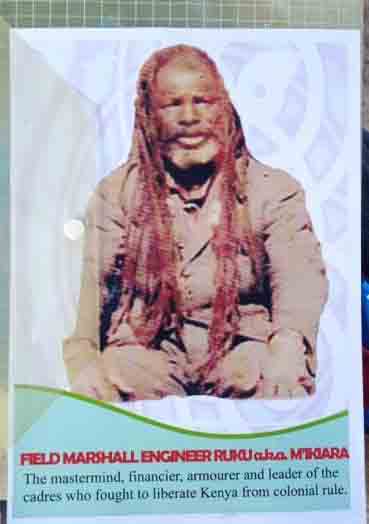×
The Standard e-Paper
Join Thousands Daily

Late Field Marshal M’Ikiara wa Nyonta Ruku from Meru will be honoured posthumously by Meru County Government for his contribution to the nation. [Courtesy]
Late Mau Mau war hero Field Marshal M’Ikiara wa Nyonta Ruku from Meru will be honoured posthumously for his contribution to the nation.